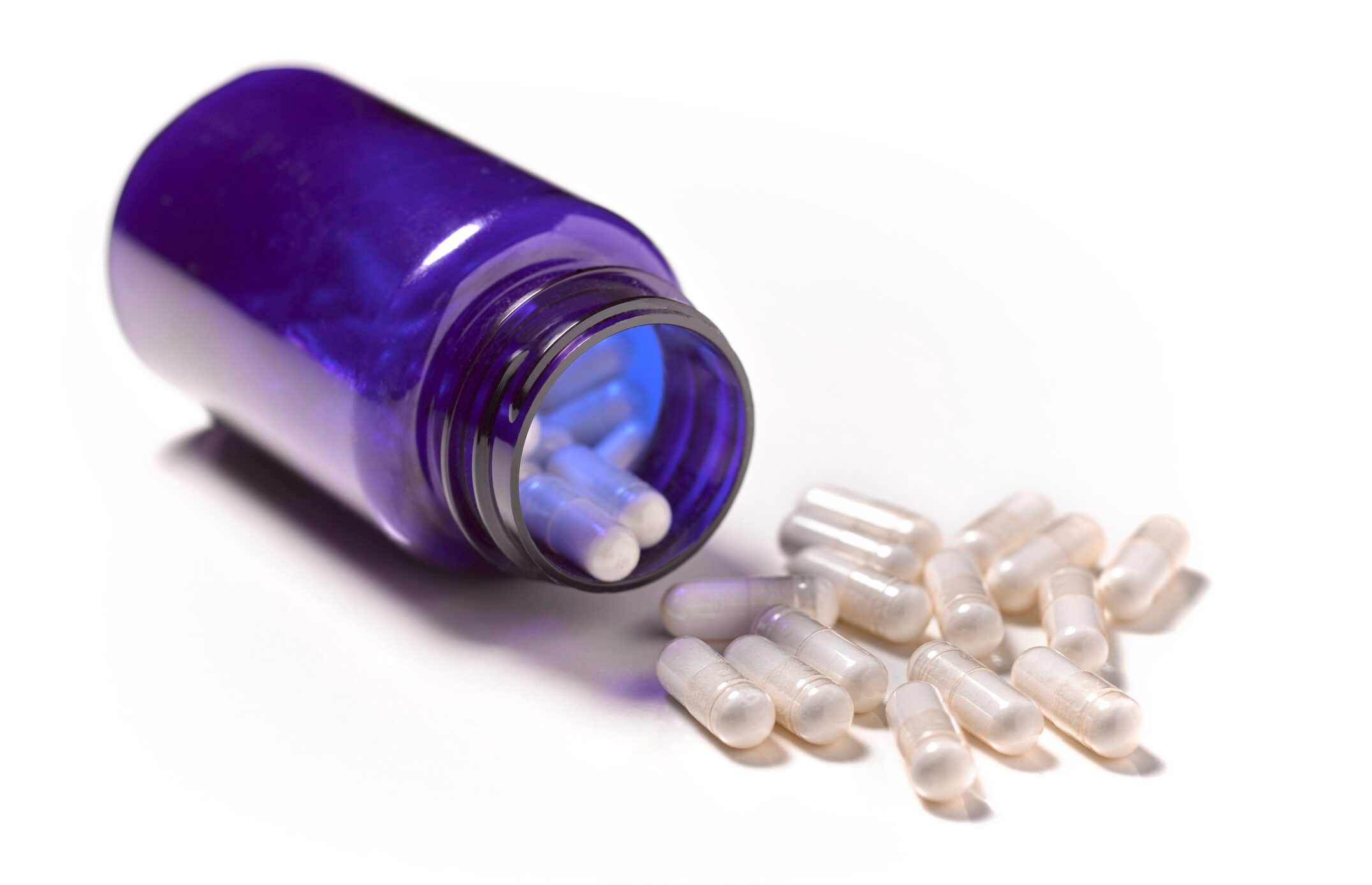Four products could cause “a significant drop in blood pressure that may be life threatening," the government says. Here's who's most at risk.

A Male Enhancement Drug Recall Just Received the FDA’s Highest Risk Warning

According to Yahoo! Finance, the market for male sexual enhancement supplements is poised to grow to $1.03 billion by 2028. Their report notes a “trend towards rapid growth of e-commerce,” meaning products being sold online.
But, of course, taking a medication that’s bought without the supervision of a licensed healthcare provider comes with important cautions. Today a recent recall highlights some concerns around male enhancement supplements—especially those purchased on the internet.
In November, the U.S. Food and Drug Administration (FDA) announced that a pair of California-based companies—Boulla LLC and VitalityVita—have voluntarily recalled one lot of ZoomMax Capsules and ZapMax Capsules (Boula) as well as one lot of VitalityXtra Capsules and PeakMax Capsules (VitalityVita).
All four of the products were sold online via Amazon and marketed as dietary supplements. However, according to the FDA’s report, they were found to be tainted with two drugs, sildenafil and diclofenac, both of which disqualify the products from market approval. Sildenafil is a medication used in the treatment of male erectile dysfunction, while diclofenac is a nonsteroidal anti-inflammatory drug (NSAID) used to treat pain and inflammation. “Products containing sildenafil and diclofenac cannot be marketed as dietary supplements,” the FDA explicitly states.
The agency adds that consuming these undeclared ingredients can cause dangerous interactions with other prescription drugs—especially if those drugs contain nitrates. According to a series of updates posted on the FDA’s December 2 update on the recall, the incident is now considered a Class I recall. The FDA says: “A class I recall is the most serious, where there is a reasonable probability that using or being exposed to the recalled drug will cause serious adverse health consequences for a patient or a consumer.”
Specifically, the safety alert warns that products that contain undeclared sildenafil could cause “a significant drop in blood pressure that may be life threatening. People with diabetes, high blood pressure, high cholesterol, or heart disease often take nitrates. Among the adult male population, who are most likely to use this product, adult males who use nitrates for cardiac conditions are most at risk,” the recall notice says.
Meanwhile, undeclared diclofenac has been shown to increase the risk of cardiovascular events, including heart attack and stroke. Additionally, consumers may have a heightened risk of “serious gastrointestinal damage, including bleeding, ulceration, and fatal perforation of the stomach and intestines. This hidden drug ingredient may also interact with other medications and significantly increase the risk of adverse events, particularly when consumers use multiple NSAID-containing products,” the FDA writes.
The affected items were packaged in 10-count blister packs in 500-milligram (mg) doses. Boula’s recalled products bear the lot code YZM240406 and an expiry date of April 5, 2027. VitalityVita’s products bear the lot code 230811 and an expiry date of August 11, 2025.
It’s said that at the time of the recall, no adverse health effects had been reported to either company. However, a 2020 notice from the FDA warning against the use of over 50 brands of male enhancement and weight loss supplements shows that the problem goes far beyond a single recall. “All 26 of the products the FDA purchased on Amazon and 20 of 25 products, or 80 percent, purchased on eBay contained undeclared active pharmaceutical ingredients,” the health authority reported. “Many of these are active ingredients for use in FDA-approved prescription drugs, which are restricted to use under the supervision of a licensed health care professional.”
One takeaway is that if you’re interested in exploring a product that can add some excitement, many licensed medical doctors will be supportive to have that conversation with you.
If you believe you have had an adverse health reaction as a result of taking these products, contact your medical provider. You can also report it to FDA’s MedWatch Adverse Event Reporting program.
For daily wellness updates, subscribe to The Healthy by Reader’s Digest newsletter and follow The Healthy on Facebook and Instagram. Keep reading:



















